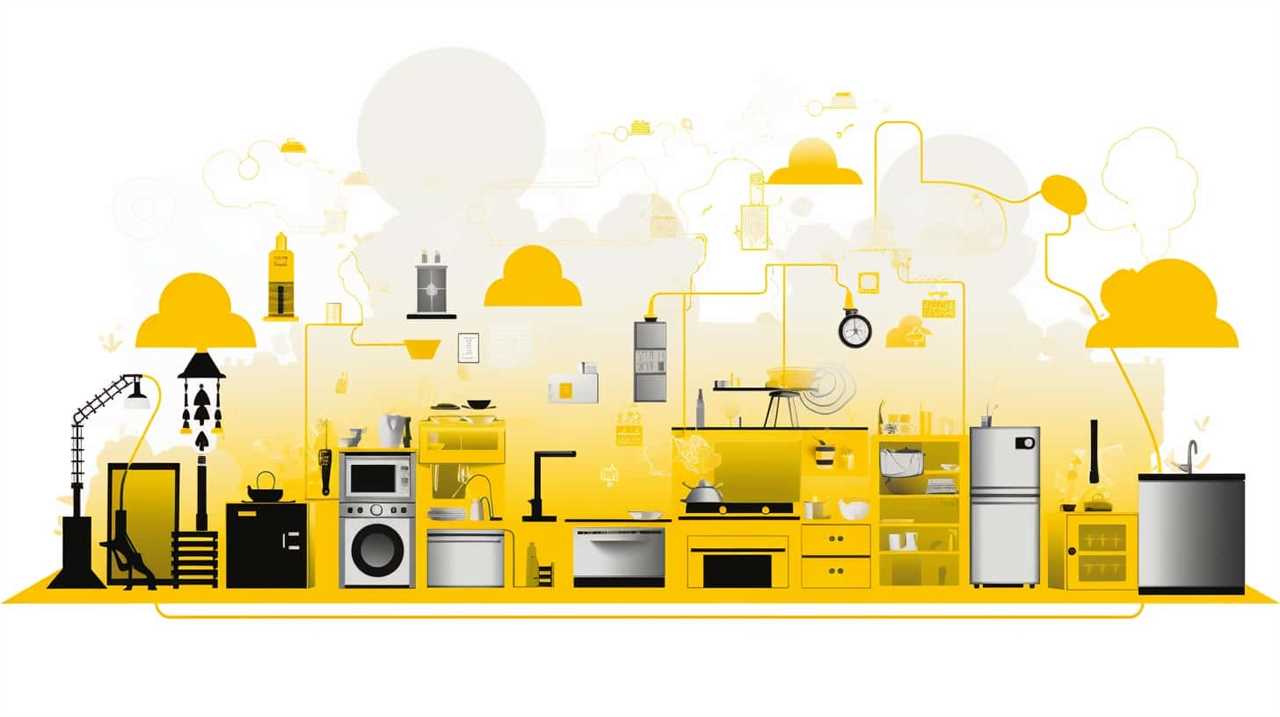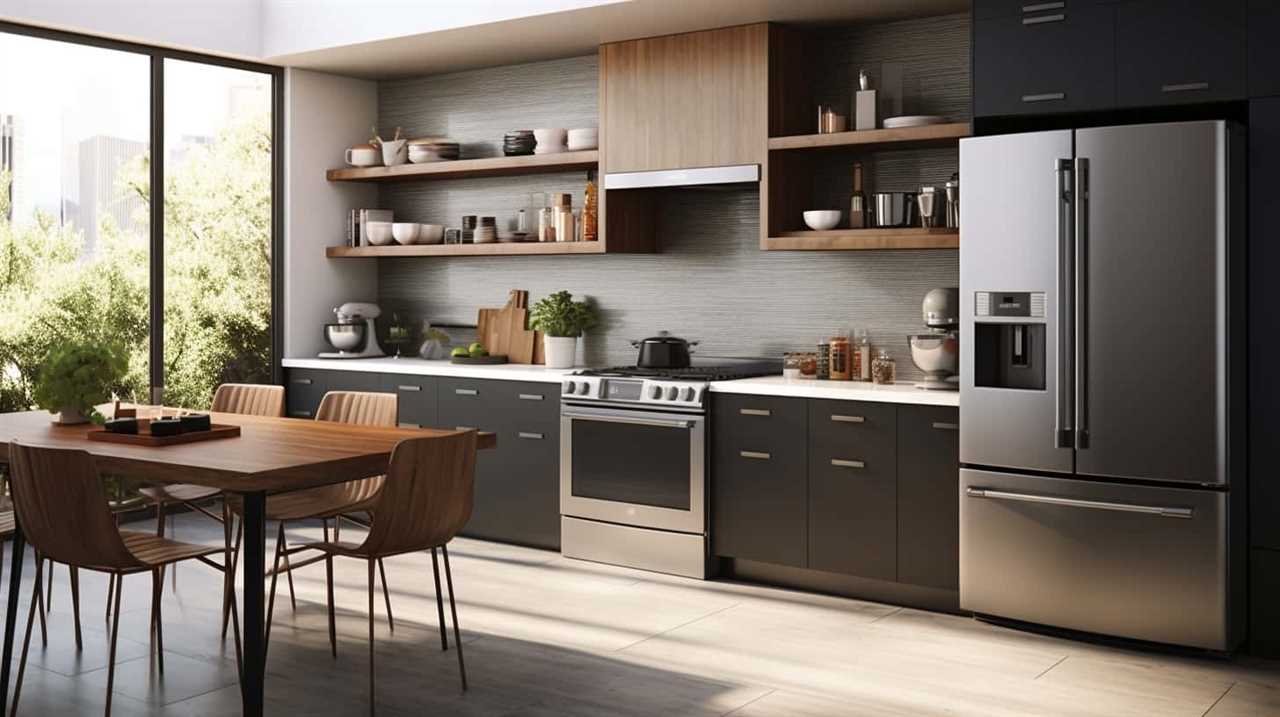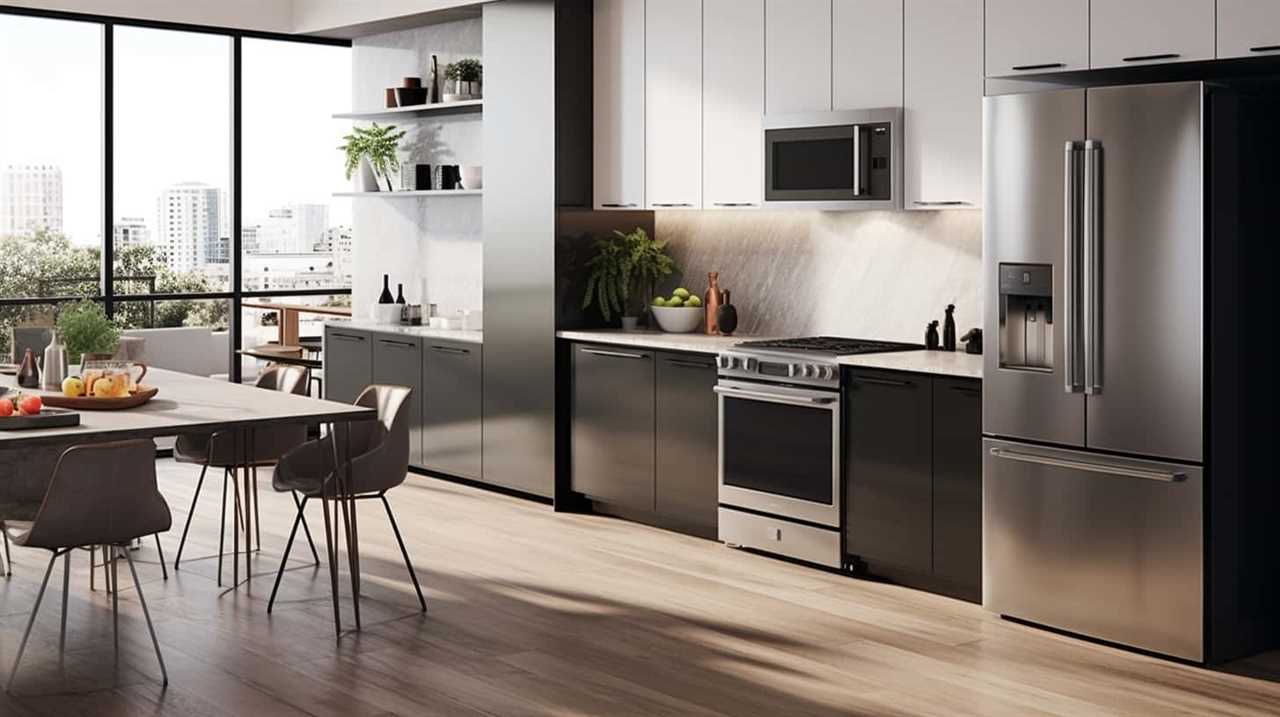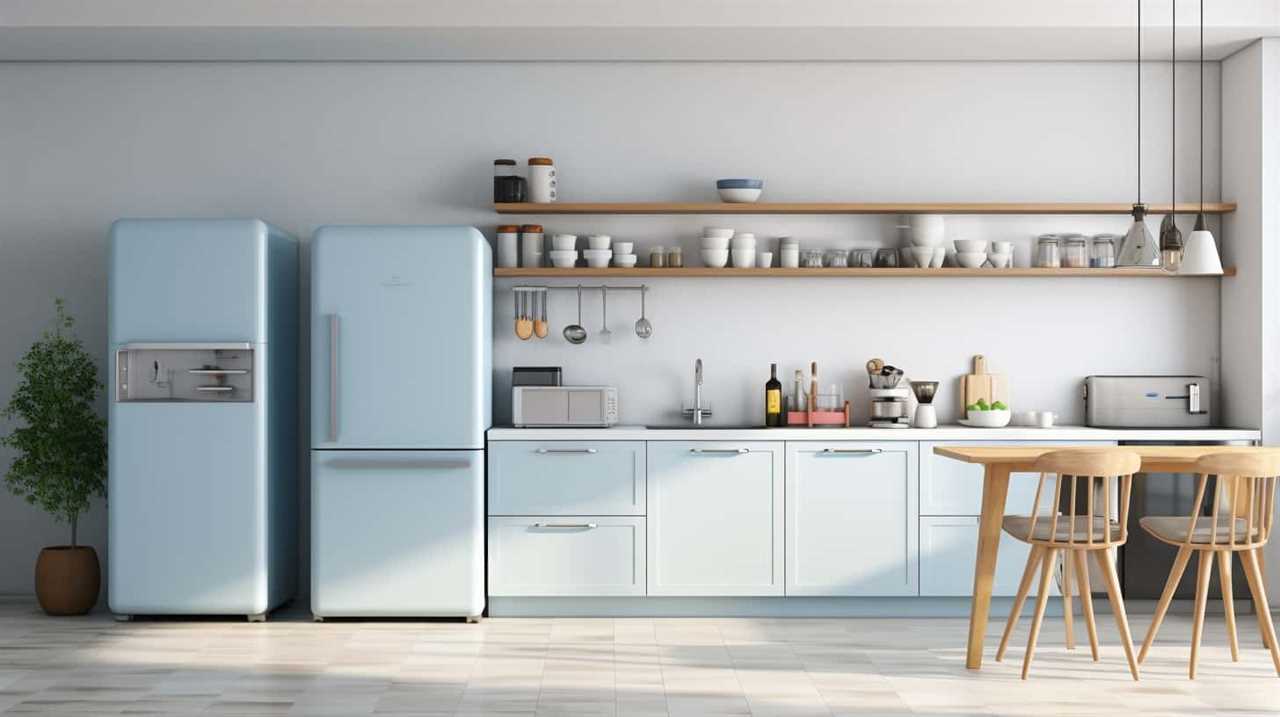Electric appliances are essential in our everyday lives, offering convenience, efficiency, and improved functionality. It is important to have a good grasp of what electric appliances are and their examples for anyone looking to excel in this field.
Electrical appliances are devices that utilize electrical energy to perform specific tasks or functions. They are designed to make our lives easier by automating processes, saving time, and improving overall productivity. These appliances encompass a wide range of categories, including kitchen appliances, household appliances, and personal care appliances.
Examples of electrical appliances include refrigerators, washing machines, ovens, hair dryers, and electric toothbrushes, among many others. Each appliance operates on electrical power and employs different mechanisms to fulfill its intended purpose.
By comprehending the fundamentals of electrical appliances and their varied applications, individuals can harness their full potential, make informed choices, and optimize their efficiency in both professional and personal settings.

Key Takeaways
- Electrical appliances convert electrical energy into other forms of energy, such as heat, light, or mechanical motion.
- They are energy-efficient, reducing electricity bills and conserving energy resources.
- Electrical appliances save time and reduce labor by automating household chores.
- They provide convenience and comfort, making daily activities easier.
Definition of Electrical Appliances
The definition of electrical appliances can be understood through their function and reliance on electricity for operation. Electrical appliances are devices that are designed to perform specific tasks by utilizing electrical energy. These appliances convert electrical energy into other forms of energy, such as heat, light, or mechanical motion, to accomplish their intended purpose.
Examples of electrical appliances include refrigerators, televisions, washing machines, air conditioners, and electric stoves. Electrical appliances play a crucial role in our daily lives, as they provide convenience and efficiency in performing various tasks. They have revolutionized the way we live and work, making our lives easier and more comfortable.
Without electrical appliances, many essential tasks would become time-consuming and labor-intensive. In the following section, we will explore the importance of electrical appliances in more detail.
Importance of Electrical Appliances
Electrical appliances play a vital role in enhancing efficiency and convenience through their utilization of electrical energy. One of the key benefits of using electrical appliances is the importance of energy conservation. These appliances are designed to be energy-efficient, meaning they consume less power while performing their functions effectively. This not only helps to reduce electricity bills but also contributes to the overall conservation of energy resources.

Additionally, electrical appliances offer a wide range of benefits, including time-saving and labor reduction. For example, washing machines and dishwashers automate household chores, allowing individuals to allocate their time to other important tasks.
Furthermore, electrical appliances provide convenience and comfort by simplifying daily activities. From refrigerators to air conditioners, these appliances have become an integral part of modern living, making our lives easier and more comfortable.
How Electrical Appliances Work
Typically, electrical appliances operate using electricity as their primary source of power. They are designed to convert electrical energy into various forms of energy such as heat, light, or mechanical motion. To understand how electrical appliances work, it is important to have a basic understanding of electrical circuits.
Electrical circuits consist of a power source, such as a battery or a power outlet, connected to a load, which is the appliance itself. When the circuit is closed, electricity flows from the power source to the appliance, allowing it to function.

The energy consumption of an electrical appliance is determined by the amount of power it draws from the electrical circuit and the time it operates. By understanding the principles of electrical circuits and energy consumption, we can effectively utilize and manage electrical appliances.
Types of Electrical Appliances
There are various categories of electrical appliances that serve different purposes and meet diverse needs. These appliances can be classified into several types based on their functionality and usage.
Some common types of electrical appliances include kitchen appliances, such as refrigerators, microwaves, and dishwashers, which are designed to simplify food storage, preparation, and cleaning tasks.
Other types include heating and cooling appliances, like air conditioners and heaters, which provide comfort and regulate indoor temperatures.

Entertainment appliances, such as televisions, audio systems, and gaming consoles, offer various forms of multimedia entertainment.
Additionally, there are personal care appliances like hairdryers, electric toothbrushes, and electric shavers that help with grooming and personal hygiene.
The benefits of electrical appliances include time and energy savings, increased convenience, and improved quality of life.
Kitchen Electrical Appliances
Kitchen electrical appliances are essential for modern cooking and food preparation. These appliances include items such as:

- Microwave ovens
- Blenders
- Toasters
- Coffee makers
Additionally, energy-efficient cooking tools, such as induction cooktops and convection ovens, are gaining popularity. These appliances have the ability to save energy and reduce cooking time.
Essential Kitchen Appliances
Refrigerators are an essential electrical appliance found in most kitchens. They are designed to keep food and beverages fresh by maintaining a cool temperature.
In addition to refrigerators, there are several other kitchen appliances that are considered essential for modern households. These appliances not only make our lives easier but also contribute to energy efficiency and the concept of a smart home.
Here are five essential kitchen appliances:

- Dishwashers: These appliances automate the process of washing dishes, saving time and water.
- Microwaves: They provide quick and convenient cooking options, helping to speed up meal preparation.
- Induction cooktops: These energy-saving kitchen appliances use electromagnetic fields to heat the cookware directly, resulting in faster cooking times and less energy waste.
- Coffee makers: For coffee enthusiasts, having a coffee maker is a must-have, allowing for the brewing of fresh coffee at any time.
- Toasters: These small appliances are perfect for toasting bread and bagels, providing a quick and easy breakfast option.
Investing in energy-saving kitchen appliances and incorporating smart home appliances can not only enhance the functionality of your kitchen but also contribute to a more sustainable and efficient lifestyle.
Energy-Efficient Cooking Tools
Energy-efficient cooking tools, such as induction cooktops and convection ovens, are becoming increasingly popular in modern kitchens. These appliances utilize advanced technology to reduce energy consumption and provide efficient cooking methods.
Induction cooktops use electromagnetic fields to heat the cookware directly, resulting in faster heating times and precise temperature control. This method is highly energy efficient as it only heats the cookware and not the surrounding area.
Convection ovens, on the other hand, use a fan to circulate hot air evenly throughout the oven, reducing cooking time and energy usage.

These eco-friendly kitchen appliances not only save energy but also help to preserve the environment by reducing greenhouse gas emissions. Investing in energy-efficient cooking tools is a smart choice for those looking to reduce their carbon footprint and save on energy costs.
Household Electrical Appliances
Household electrical appliances are essential for everyday tasks and convenience. From refrigerators and washing machines to vacuum cleaners and air conditioners, these appliances have become integral parts of our lives.
However, it is important to consider energy-efficient options to reduce electricity consumption and environmental impact.
Additionally, proper safety precautions and regular maintenance are necessary to ensure the longevity and safe operation of these appliances.

Common Household Appliances
One of the most essential items found in many homes are electrical appliances. These common household appliances make our lives easier and more convenient.
In the kitchen, essential kitchen appliances include:
- Refrigerator: Used for storing food and keeping it fresh.
- Oven: Used for baking, roasting, and cooking food.
- Dishwasher: Used for cleaning dishes, saving time and effort.
- Microwave: Used for quickly heating and cooking food.
- Coffee maker: Used for brewing coffee, providing a morning pick-me-up.
These appliances have become integral parts of our daily routines, streamlining various tasks and saving us valuable time.
As technology advances, more energy-efficient options are becoming available, allowing us to reduce our environmental footprint while still enjoying the benefits of these essential appliances.

Energy-Efficient Options
As technology continues to advance, it is important to consider the environmental impact of our household appliances by opting for more energy-efficient options. One area where energy efficiency can be improved is in lighting.
Energy-efficient lighting options, such as LED bulbs, consume less electricity and have a longer lifespan compared to traditional incandescent bulbs. LED bulbs also produce less heat, reducing the strain on cooling systems.
Another way to enhance energy efficiency in our homes is through the use of smart home technology. This technology allows homeowners to monitor and control their appliances remotely, optimizing their energy consumption. Smart thermostats, for example, can learn your habits and adjust the temperature accordingly, resulting in energy savings.
Safety Precautions and Maintenance
To ensure the safe operation and longevity of electrical appliances, it is crucial to follow proper maintenance and safety precautions.

Here are five important electrical appliance maintenance and safety precautions to keep in mind:
- Regular cleaning: Dust and debris can accumulate on electrical appliances, potentially causing overheating or electrical shock. Regularly clean appliances to remove any dirt or dust.
- Proper storage: Store appliances in a clean, dry area away from water sources to prevent electrical hazards.
- Regular inspections: Inspect electrical cords for any signs of wear or damage. Replace frayed or damaged cords immediately to avoid potential electrical fires.
- Use the correct wattage: Always use the correct wattage bulbs and fuses for your appliances to prevent electrical overloads and fires.
- Unplug when not in use: When not in use, unplug appliances to reduce the risk of electrical shock and save energy.
Personal Care Electrical Appliances
Personal care electrical appliances are essential tools for individuals looking to enhance their grooming routines and maintain a polished appearance. These grooming tools utilize electricity to provide efficient and effective solutions for personal care needs.
Examples of personal care electrical appliances include:
- Electric razors: These offer a close and precise shave, making them popular among men. They often come with features like multiple cutting heads and adjustable settings for a customized shaving experience.
- Hair dryers: These appliances provide quick drying and styling options, making them a must-have for those who want to achieve a desired hairstyle in a short amount of time. They often come with different heat and speed settings to cater to various hair types.
- Electric toothbrushes: These offer advanced cleaning technology for optimal oral hygiene. They typically come with rotating or vibrating brush heads to remove plaque and ensure a thorough clean. Some models even have pressure sensors and timers to guide users in achieving the recommended brushing time and pressure.
- Electric manicure sets: These provide salon-quality nail care at home. They often include tools like electric nail files, buffers, and polishers to help achieve professional-looking nails. Some sets even have UV lights for curing gel nail polish.
These appliances are designed with safety features to ensure user protection. For instance, many electric razors and hair dryers have auto shut-off mechanisms to prevent overheating and accidents. Electric toothbrushes often have temperature controls to ensure comfortable brushing. It is important to follow the manufacturer’s instructions and guidelines to use these appliances safely.

Regular maintenance, such as cleaning and replacing parts, is necessary to prolong the lifespan and performance of personal care electrical appliances. This includes cleaning the blades or attachments of electric razors, removing lint from hair dryer filters, and replacing toothbrush heads regularly. By taking proper care of these appliances, individuals can enjoy their benefits for a long time.
Energy Efficiency of Electrical Appliances
The energy efficiency of personal care electrical appliances is a crucial factor to consider when choosing these essential grooming tools. Energy-efficient appliances not only help you save on your electricity bills but also contribute to a healthier environment by reducing carbon emissions.
Here are five energy-saving tips and benefits of energy-efficient appliances:
- Opt for appliances with the Energy Star label, as they meet strict energy efficiency guidelines.
- Look for appliances with adjustable settings and timers to optimize their energy usage.
- Choose appliances with low standby power consumption to minimize wasted energy.
- Invest in appliances with efficient insulation and temperature control features to reduce energy loss.
- Consider purchasing appliances with renewable energy options, such as solar-powered electric toothbrushes or hair dryers.
Frequently Asked Questions
Can Electrical Appliances Be Used Safely in Wet Areas Such as Bathrooms or Near Water Sources?
Using electrical appliances in wet areas, such as bathrooms or near water sources, requires precautions to ensure safety. Adequate grounding, proper insulation, and the use of waterproof or water-resistant appliances are essential to minimize the risk of electric shock or damage.

Are There Any Regulations or Safety Standards That Apply to the Manufacturing and Usage of Electrical Appliances?
Regulations and safety standards are in place to ensure the manufacturing and usage of electrical appliances meet specific criteria for safety and quality. These guidelines address various aspects, including electrical safety, construction, labeling, and performance testing.
How Can I Determine the Power Consumption of Electrical Appliances and Estimate Their Impact on My Electricity Bill?
To determine the power consumption of electrical appliances and estimate their impact on your electricity bill, you can refer to the manufacturer’s specifications for the wattage or use a watt meter to measure the actual power usage. This information will help you make informed decisions about energy consumption and manage your electricity expenses.
Are There Any Health Risks Associated With Using Electrical Appliances?
In the long term, using electrical appliances may pose potential health risks. To minimize the risks of electrical accidents, it is crucial to take safety precautions such as regular maintenance, proper usage, and following manufacturer guidelines.
What Steps Can I Take to Prolong the Lifespan of My Electrical Appliances and Ensure Their Optimal Performance?
To prolong the lifespan of electrical appliances and ensure optimal performance, regular maintenance is crucial. This includes cleaning, checking for loose connections, and avoiding overloading. Following manufacturer’s instructions and scheduling professional servicing can also help maintain their efficiency.

Conclusion
In conclusion, electrical appliances are devices that use electricity to perform specific tasks. They play a crucial role in our daily lives, providing convenience and efficiency. Understanding how electrical appliances work can help us make informed choices and ensure their proper usage.
There are various types of electrical appliances, including kitchen appliances, household appliances, and personal care appliances. It is important to consider the energy efficiency of electrical appliances to minimize energy consumption and reduce environmental impact.
In today’s fast-paced world, electrical appliances have become indispensable.










